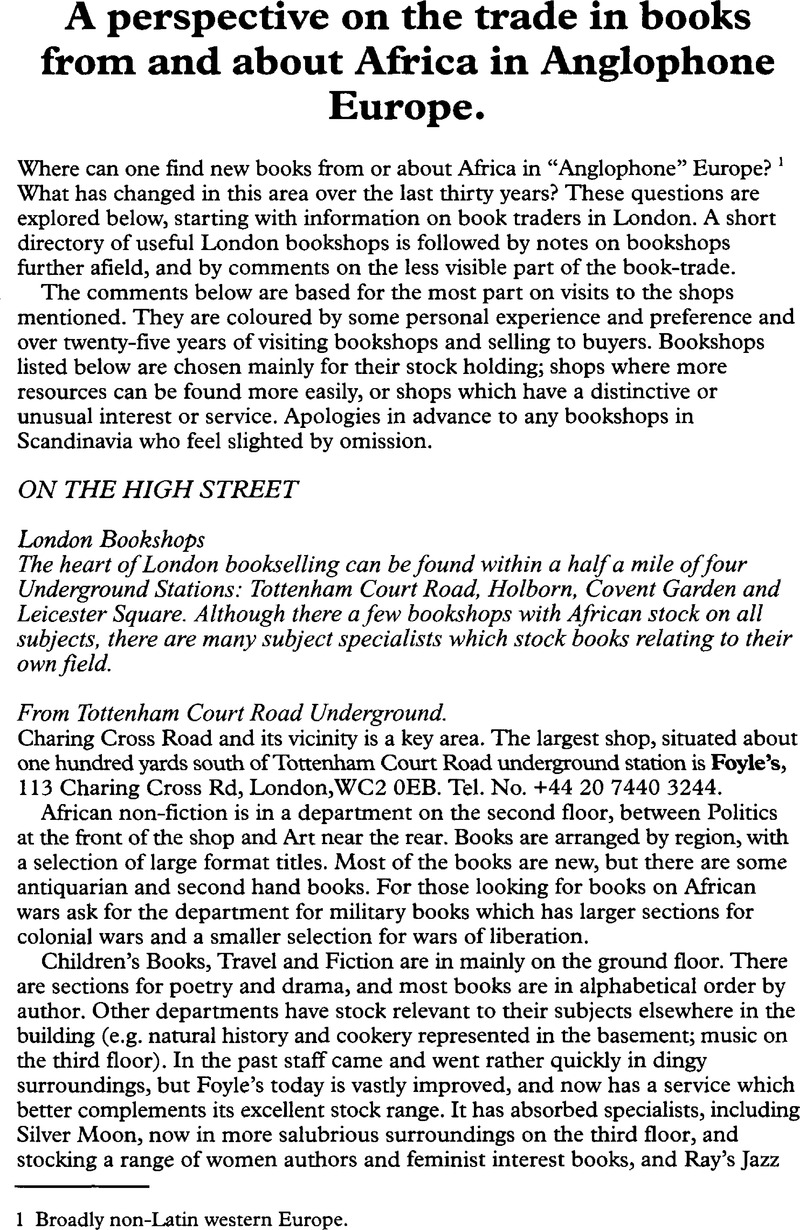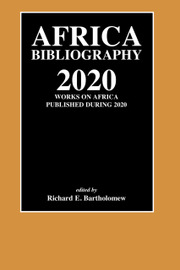No CrossRef data available.
Article contents
A perspective on the trade in books from and about Africa in Anglophone Europe.
Published online by Cambridge University Press: 16 March 2011
Abstract

- Type
- Introduction
- Information
- Africa Bibliography , Volume 2002: Africa Bibliography 2002 Works on Africa Published during 2002 , March 2003 , pp. vii - xvii
- Copyright
- Copyright © International African Institute 2003
References
1 Broadly non-Latin western Europe
2 Battlebridge Publishers have done much to document this presence and have two useful books which are worth looking at:
Philip Baker & John Eversley: MULTILINGUAL CAPITAL: The Languages of London's Schoolchildren and their Relevance to Economic, Social and Educational Policies. This book has detailed information about more than 300 languages spoken in London, including maps illustrating their demographic spread, and has contributions from eight specialists who discuss the relevance of this research for policy development. A4 format, colour illustrations: 31 maps, index, iv, 92pp, UK , 2000, LARGE FORMAT A4, 190329200X,PB, £15.00;
Philip Baker & Jeehoon Kim [Compilers] GLOBAL LONDON.: This is an aid to finding almost everything ethnic and cultural in the multilingual capital. 24 × 17 cms; 192 pages, 75 b&w photographs. London: ISBN 1-903292-09-3 £9.95 There is also a website with some of this information online: www.global-london.com
3 In a recent book, published by the International Network for the Availability of Scientific Publications, The Book Chain in Anglophone Africa, Ed. Roger Stringer, (Oxford, INASP), 2002, ISBN 1902928113, the Director of INASP, Carol Priestley writes: “Funders have maintained their support to the book chain in Africa into the 21 st century, recognizing it to be a key foundation block in education, as well as enabling an expression of cultural heritage and diversity. However, virtually all new initiatives whether support to networks, staff training, or development of electronic services are the result of outside assistance. Although a great deal of emphasis from 1995 to date has been placed on ‘affordability’ and ‘sustainability’, there is no doubt that many of these initiatives are totally dependent on external funding for start-up investment.”
4 The Africa Book Centre has used UK book events to raise money and sell African books, choosing to donate funds for spending in Soweto through the South African charity Community Heart so that benefits might accrue both to readers and to African booksellers and publishers. Money spent in the UK cannot match this triple benefit.




